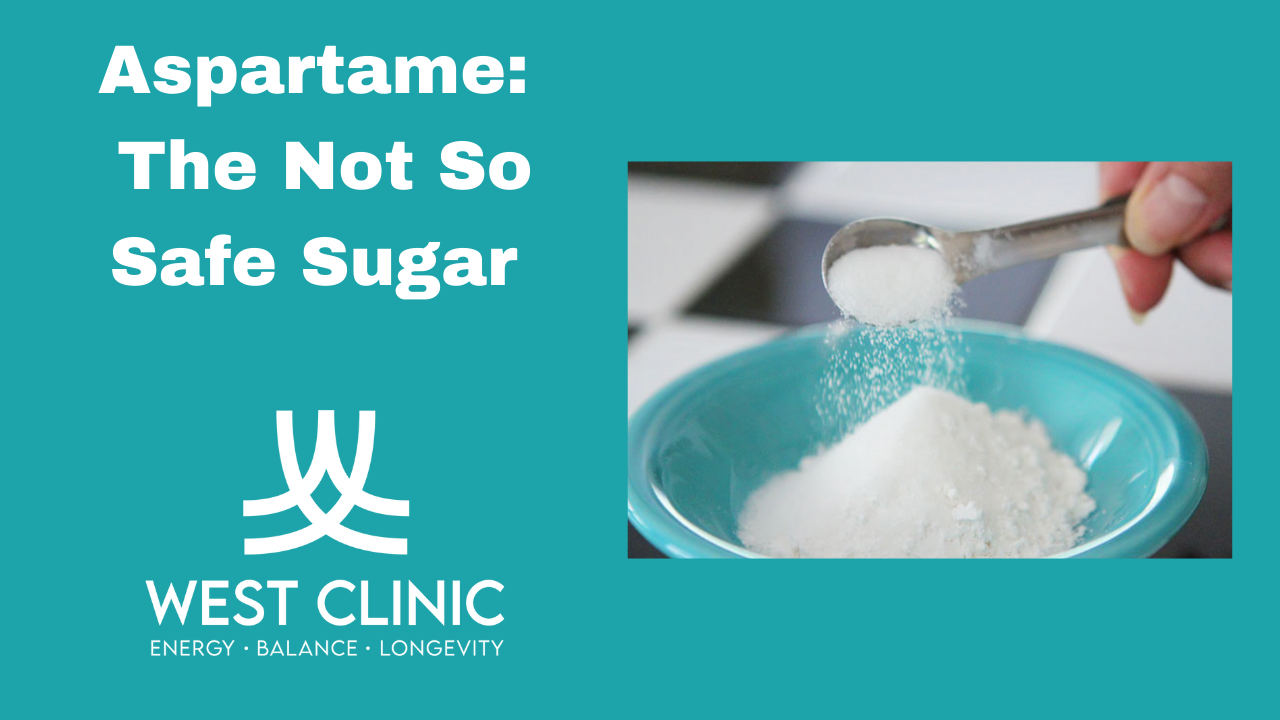Aspartame – The Not So Safe Sugar

Aspartame might be considered the most dangerous food additive on the market today, yet we still consume it every day.
You’ve heard of Aspartame, and you have most likely eaten it. It’s the technical name for NutraSweet, Equal, Spoonful and Equal-Measure (all sweeteners–the not-so-sugar sugars). The thought was, since sugar is bad for you, they would make something that sweetens like sugar, but isn’t sugar, so they would have the best of both worlds–sweet and no sugary side effects. Unfortunately, they didn’t get the best of both worlds, they got the worst.
There are three chemicals that make up aspartame: aspartic acid, phenylalanine, and methanol.
Aspartic Acid (40% of aspartame)
Dr. Russell Blaylock, a professor of neurosurgery at the Medical University of Mississippi, published a book thoroughly detailing the neurological damage and disorders caused by ingesting aspartic acid from aspartame.
The Department of Human Health and Services has reported that over 75 percent of the adverse reactions to food additives reported to the FDA come from ingesting aspartame. Many of these reactions are very serious, like seizures and death. However, there are over 90 different symptoms associated with aspartame, including:
- Headaches/Migraines
 Dizziness
Dizziness- Nausea
- Numbness
- Muscle spasms
- Weight gain
- Rashes
- Depression
- Fatigue
- Irritability
- Tachycardia
- Insomnia
- Vision problems
- Hearing loss
- Heart palpitations
- Breathing difficulties
- Anxiety attacks
- Slurred speech
- Loss of taste
- Tinnitus
- Vertigo
- Memory loss
- Join Pain
According to researchers and physicians who study the effects of aspartame, ingesting aspartame can trigger or worsen:
- Brain tumors
- Multiple sclerosis
- Epilepsy
- Chronic fatigue syndrome
- Parkinson’s disease
- Alzheimer’s
- Mental retardation
- Lymphoma
- Birth defects
- Fibromyalgia
- Diabetes
So why does this happen?
To understand this, you must look at aspartate and glutamate (the main part of monosodium glutamate-MSG). Both are amino acids, and act as neurotransmitters in the brain by facilitating the transmission of information from neuron to neuron. If too much is introduced, an influx of too much calcium is released into the cell, triggering excessive amounts of free radical, which in the end kills the cells.
This excessiveness is why aspartate and glutamate are called “exitotoxins.” They “excite” the neural cell to death.
Aspartic acid is also an amino acid, which taken in its free form-unbound to protein, as seen in sweeteners–significantly raises blood plasma levels of aspartate and glutamate. Then you see an increase of those excitotoxins – slowly destroying neurons.
More than 75 percent of neural cells in a particular area of the brain are killed BEFORE any clinical symptoms of chronic illness are noticed.
The risk to infants, children, pregnant women, the elderly, and people with chronic health conditions from excitotoxins are great.
Phenylalanine (50% of aspartame)
Phenylalanine is an amino acid normally found in the brain. It has been shown that ingesting aspartame, especially along with carbohydrates, can lead to excessive levels of phenylalanine in the brain. These excess levels of phenylalanine in the brain can cause serotonin levels in the brain to decrease, which then can lead to emotional disorders such as depression.
Even a single use of aspartame raises the blood phenylalalanine levels, in concentrated parts of the brain, and is especially dangerous for infants and fetuses.
Be careful of that diet soda.
Menthanol (10% of aspartame)
Methanol is also known as wood alcohol/poison, and is considered a deadly poison. It is gradually released in the small intestine when the methyl group of aspartame encounter the enzyme chymotrypsin (a digestive enzyme that breaks down proteins).
Menthanol breaks down into formic acid and formaldehyde in the body. Formaldehyde is a deadly neurotoxin. An EPA assessment of methanol states that methanol is considered a cumulative poison due to the low rate of excretion once it is absorbed. In the body, methanol is oxidized to formaldehyde and formic acid—both of these metabolites are toxic.
What do you do?
Eating and drinking foods sweetened with aspartame is something you’ll have to decide for yourself. The best thing is to be informed so you can make the best decision for you.



